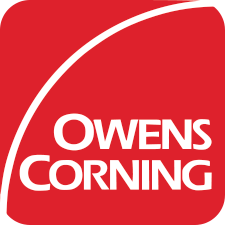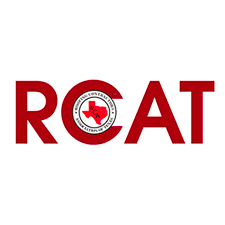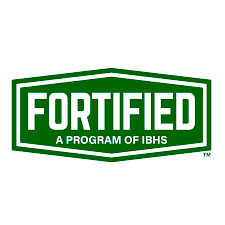
Navigating a roofing project, particularly one involving insurance claims, can be a complex process. One question that often arises in such scenarios is why a roofer might want to see the insurance check. This practice, while potentially confusing at first, is rooted in the intricacies of insurance claims and the financial transactions involved in roofing projects. This article explores the reasons behind this practice, providing insights that can help homeowners and other stakeholders understand and navigate this aspect of their roofing project.
The Role of Insurance in Roofing Projects
Insurance plays a critical role in many roofing projects, particularly those involving damage repair. When a roof is damaged due to events like storms, hail, or other incidents covered under a homeowner’s insurance policy, the homeowner typically files a claim with their insurance company. The insurance company then assesses the claim, which often involves an inspection of the damage, and determines the payout amount. This payout is intended to cover the cost of repairs or replacement, minus any applicable deductible.
The insurance check, therefore, represents the budget available for the roofing project. It’s a crucial piece of information that helps define the scope of the work that can be done. However, it’s important to note that the payout amount is based on the insurance company’s assessment of the damage and the terms of the homeowner’s policy, which may not always align perfectly with the roofer’s assessment or the actual costs of repair or replacement.
The Roofer’s Perspective
From the roofer’s perspective, seeing the insurance check can provide valuable insights into the project. First and foremost, it helps the roofer understand the financial parameters of the project. Knowing the amount of the insurance payout allows the roofer to determine what repairs can be done within that budget.
Moreover, the insurance check often comes with a detailed breakdown of the work that the insurance company has agreed to cover. This breakdown can help the roofer understand the insurance company’s assessment of the damage and the repairs they deem necessary. While the roofer will conduct their own assessment, this information can provide a useful starting point for discussions with the homeowner about the scope of the work.
Ensuring Fair Pricing and Scope of Work
The insurance check serves as a benchmark for the cost of the roofing project. By viewing the check, roofers can tailor their services to fit within the budget set by the insurance payout. This practice can help ensure that homeowners are charged a fair price for the work done.
However, it’s important to note that the insurance payout is based on the insurance company’s assessment of the damage, which may not always align with the roofer’s assessment. For instance, the roofer might identify additional damage that was overlooked by the insurance adjuster, or they might disagree with the adjuster’s estimation of repair costs. In such cases, the roofer can assist the homeowner in negotiating with the insurance company for a higher payout.
Moreover, viewing the insurance check can help the roofer align their scope of work with the repairs covered by the insurance claim. This alignment is crucial to ensure that the homeowner is not left with out-of-pocket expenses for necessary repairs that were not included in the insurance payout.
Legal and Ethical Considerations
There are legal and ethical considerations to keep in mind when a roofer asks to see the insurance check. Legally, it’s important to note that the insurance payout is made to the homeowner, and they have the right to choose their contractor and to negotiate the cost of the work. Roofers should not pressure homeowners into signing over their insurance checks or agreeing to work that they are not comfortable with.
Ethically, transparency and communication are key when working with roofing companies. Roofers should clearly explain why they want to see the insurance check and how it will inform their work. They should also respect the homeowner’s decisions regarding the insurance payout and the scope of work.
The Importance of Clear Communication and Understanding the Contract
In any roofing project, especially those involving insurance claims, clear communication between all parties involved is crucial. This includes communication between the homeowner and the roofer, as well as between the homeowner and the insurance company.
When a roofer asks to see the insurance check, it should be part of an open dialogue about the project’s budget and scope. The roofer should explain why they want to see the check and how it will inform their work. Homeowners, on the other hand, should feel free to ask questions and seek clarification on any points they’re unsure about.
Furthermore, understanding the contract with the roofer is paramount. The contract should clearly outline the scope of the work, the cost, and the terms of payment. If the insurance check is part of the payment, this should be clearly stated in the contract.
It’s also worth noting that some states have laws regulating what a contract for roofing work should include and how it should be presented to the homeowner. Homeowners should take the time to understand these laws and ensure that their contract is in compliance.
Adding an extra layer of complexity, the insurance claim process can be confusing and overwhelming for many homeowners. Roofers, with their industry knowledge and experience, can often provide valuable guidance throughout this process. However, it’s important for homeowners to stay engaged and proactive in their insurance claim, asking questions and seeking advice as needed.
Conclusion
The practice of roofers asking to see the insurance check can be a complex issue, but it’s rooted in the realities of managing roofing projects and insurance claims. By understanding the reasons behind this practice and the implications for the roofing project, homeowners can navigate this aspect of their project with confidence. As always, open communication, transparency, and a clear understanding of one’s rights and responsibilities are key to a successful roofing project.





